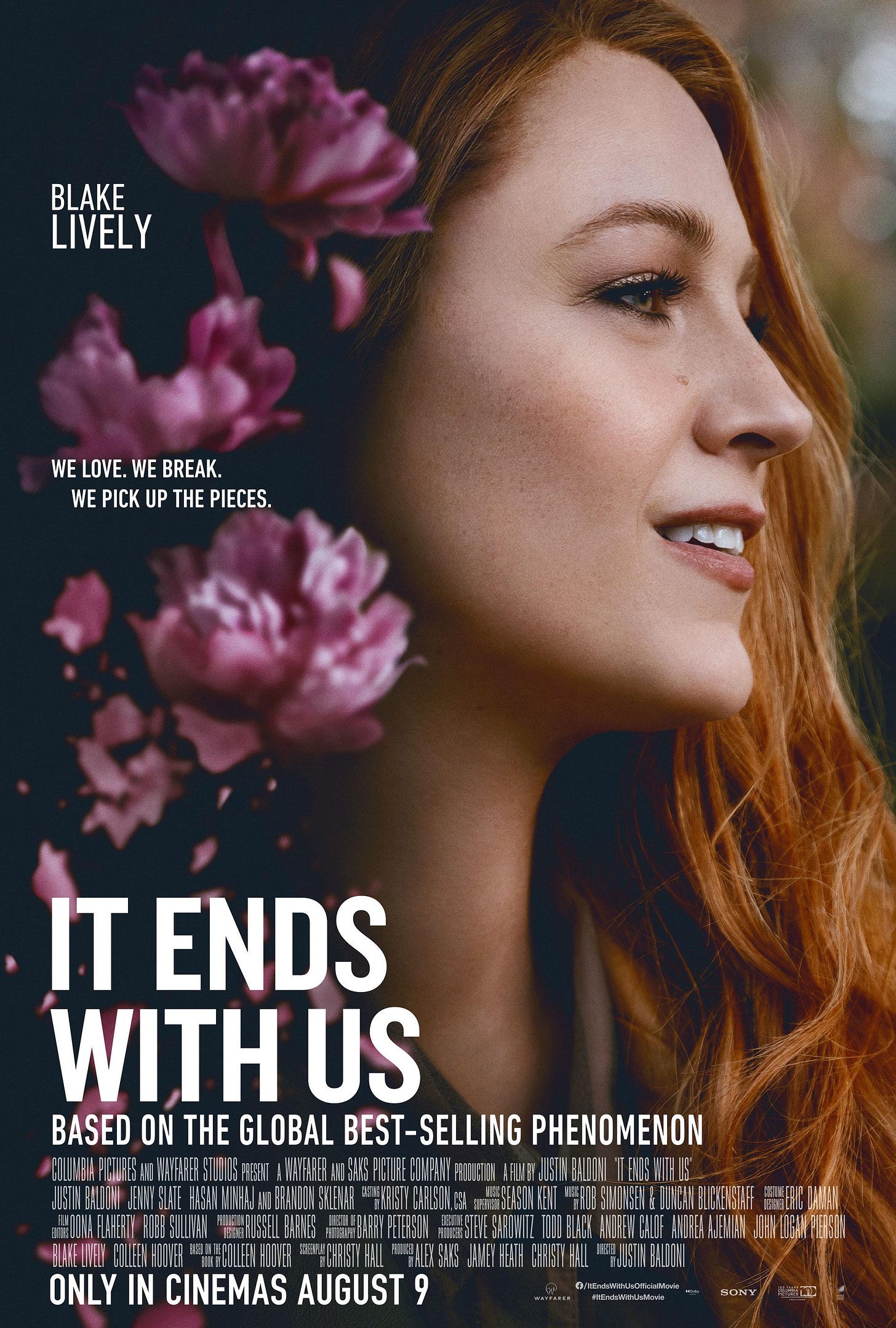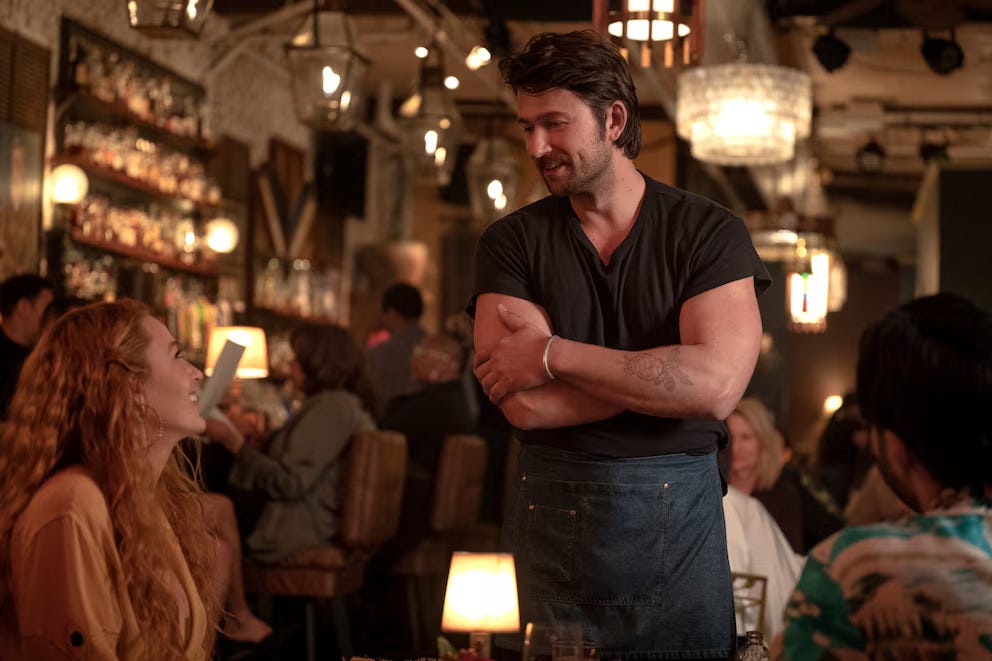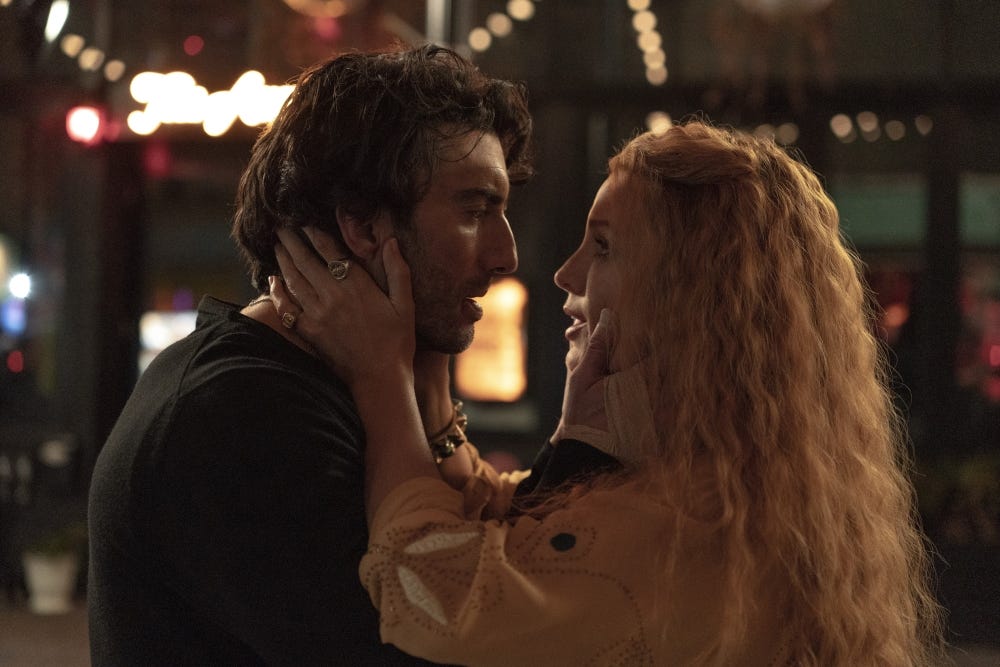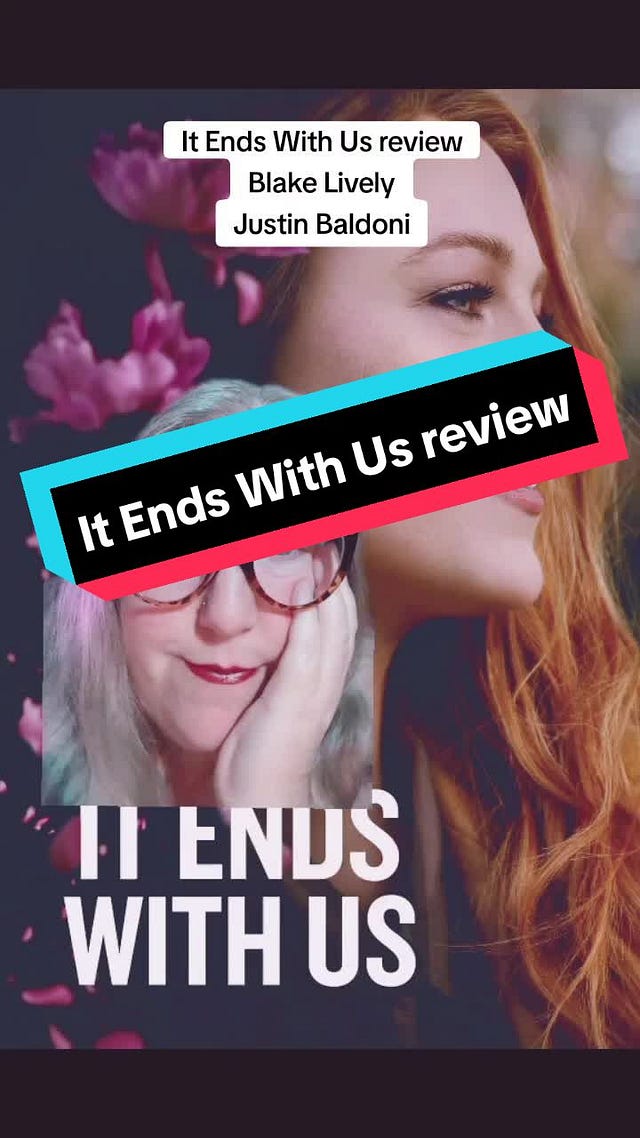Content warning: This film and review discuss situations of domestic violence. If you are in an abusive situation, help is available. You can get help by calling 1-800-799-HELP.
Colleen Hoover’s book “It Ends With Us” lived at the top of the NYT Bestseller list, so it is unsurprising that it received a film adaptation. I will say up front that I have not read the book, so I can’t speak to how well it is adapted, but I have to say that the movie doesn’t have me rushing to catch up on the source material.
Lily Blossom Bloom (Blake Lively) is about to open up her very own floral shop in Boston. While there, she meets a handsome neurosurgeon, Ryle Kincaid (Justin Baldoni). Ryle has sworn off love but chooses to make an exception when he and Lily begin to fall for one another. However, when Lily and Ryle run into her first love, Atlas Corrigan (Brandon Skelnar), after a situation where Ryle hits Lily in the face, tensions begin to build. Lily must make a choice about what she wants her life to look like going forward.
This movie deals with the subject of domestic violence in some of the most shallow ways possible. Yes, physical violence is a part of domestic violence. Still, there are so many other aspects of abusive relationships that are completely ignored in favor of glamorous parties and not all that steamy scenes between Ryle and Lily.
The performances were all good, particularly from Jenny Slate, who plays Lily’s best friend and Ryle’s sister. Baldoni played double duty as both the lead and the director, and it’s clear that he has the talent for both. This was a passion project for Lively, and her performance bears that out.
But ultimately, there needed to be more actual character development to allow us to connect with the characters. When movies try to make me cry, they almost always succeed. This is the kind of movie that should have made me cry against my will, and it couldn’t manage that, which feels like a pretty significant failure. The dialogue is stilted and never quite convincing enough to convey the emotions we were supposed to see from the performers.
I do have to give props to Baldoni’s depiction of the actual abuse. He frames it one way when it happens the first time and then another when Lily goes back and looks at it again. It is an effective way of showing how one can brush off abuse or be persuaded to believe that it’s not actually abuse that is happening.
My theater was absolutely packed, and I know most of the other showings were either sold out or nearly sold out, so I understand that this is a story that resonates with a lot of people. And if it holds a mirror to the abuse that someone is experiencing, that’s a good thing. But sadly, “It Ends With Us” only scratches the barest surface of abuse and offers some potentially dangerous advice at the end, which means I can’t recommend it.
This review originally appeared in The Dominion Post on August 11, 2024.









I read the books but think I’ll wait to see this one when it’s available for streaming. I’ve now been looped into clickbait for everything related to BTS drama between director Justin Baldoni (Ryles) and everyone else who was working on the film but namely Blake Lively/Lovely. There’s different reasons that have been purported for the why but my gawd!
My daughter asked me to read the book with her so we could see the movie together. I think most people in the theater with us had read the book - there was not a dry eye in the house. The movie was heavier on the romance and tragedy of Lily’s relationship while the book dealt more with the darker side of both Lily’s relationship and her experience growing up with an abusive father. If you have the full story in your recent memory, then the movie feels like a lovely adaptation, but if you haven’t read the book, it definitely feels more romancy.
I also feel that the entire ending (of both the book and the movie) is unrealistic to how narcissists actually operate in the world, though I can see how it might be written from an idealistic “wouldn’t it be nice” fantasy perspective.